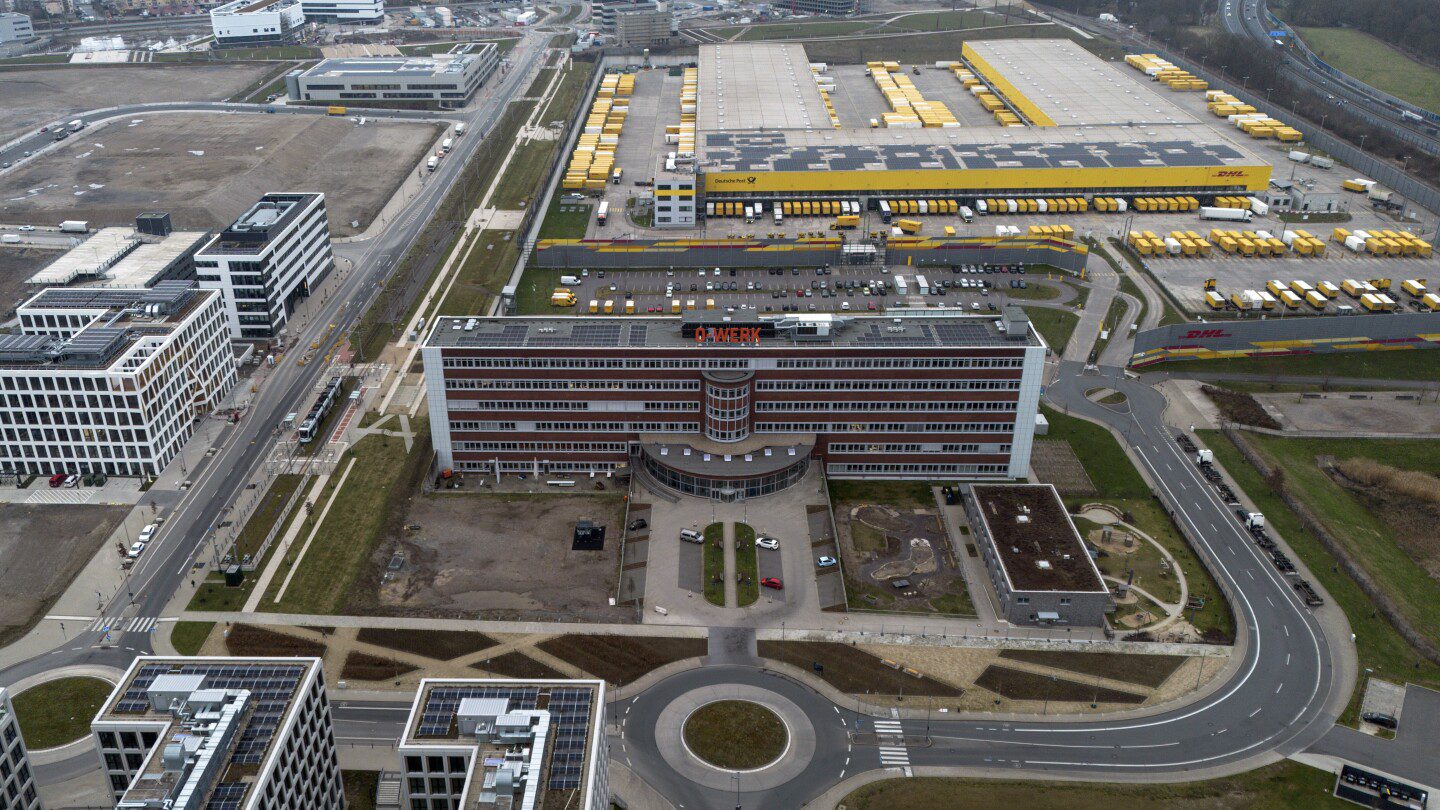
FRANKFURT, Germany (AP) — Germany has experienced a notable absence of substantial economic growth over the past five years. This marks a significant shift for Europe’s largest economy, which had long been a powerhouse of exports and a leader in global trade, particularly in sectors such as industrial machinery and luxury automobiles.
What caused this downturn?
Here are five factors contributing to Germany’s persistent economic decline:
Energy Crisis Linked to Russia
Russia’s choice to halt natural gas shipments to Germany following the invasion of Ukraine has significantly impacted the nation. For many years, Germany’s economic strategy relied on affordable energy to support the manufacturing of exported goods.
In 2011, then-Chancellor Angela Merkel expedited the phase-out of nuclear power while depending on Russian gas to bridge the energy gap during the transition from coal to renewable sources. At that time, Russia was perceived as a trustworthy energy supplier, with warnings from Poland and the United States overlooked.
However, once the gas supply was cut, energy prices soared in Germany, affecting key costs for energy-intensive sectors such as steel, fertilizers, and chemicals. The country had to pivot to importing liquefied natural gas (LNG) from sources like Qatar and the U.S. due to the increased expense compared to pipeline gas.
Currently, industrial electricity prices in Germany stand at an average of 20.3 euro cents per kilowatt-hour, based on research conducted by Prognos AG for the Bavarian Industry Association. In contrast, competitors in the U.S. and China enjoy rates that equate to roughly 8.4 euro cents.
Renewable energy sources have not been developed rapidly enough to compensate for the deficit. Resistance from homeowners and communities has hindered the expansion of wind energy, and infrastructure for hydrogen transport as a substitute fuel remains largely unplanned.
China’s Transformation: From Partner to Rival
Germany long profited from China’s integration into the global market, even while other developed nations faced job losses. German manufacturers discovered a vast new market for their machinery, chemicals, and vehicles. Companies like Mercedes-Benz, Volkswagen, and BMW thrived in the burgeoning automotive sector throughout the early 2010s.
Initially, Chinese manufacturers focused on lower-end products like furniture, which did not threaten Germany’s industrial dominance. However, as time progressed, Chinese companies began replicating German products.
Subsidized Chinese solar panels eliminated competition for German manufacturers. In 2010, China’s solar panel industry relied heavily on imported German machinery; now, many global solar panel production lines depend on Chinese-made equipment. The Chinese government has aggressively promoted export-oriented manufacturing, producing goods like steel, machinery, solar panels, electric vehicles, and EV batteries that now compete directly with German exports.
As the most automobile-dependent economy in the European Union, Germany faces significant challenges from China’s industrial strategies. While China was not a major vehicle exporter in 2020, by 2024 it had ramped up to exporting 5 million annually, forcing Germany’s net exports to decrease by half during the same timeframe, to just 1.2 million cars. China’s manufacturing capacity is projected at around 50 million vehicles annually, which meets approximately half of global demand.
Neglecting Infrastructure Investment
During prosperous years, Germany became complacent, postponing crucial investments in long-term infrastructure projects like rail systems and high-speed internet. The government maintained balanced budgets and occasional surpluses, largely from robust tax revenues during the economic boom.
Today, however, German commuters frequently encounter delays, with trains that fail to operate on schedule and ongoing service disruptions as maintenance on outdated tracks continues. Some rural areas lack reliable high-speed internet access, and the electricity transmission line designed to connect Germany’s wind-rich north to southern manufacturing centers is years behind schedule, with no completion expected until 2028. Additionally, a vital bridge connecting the industrial Ruhr region with southern Germany was closed in 2021, a decade after concerns about its integrity arose, with replacement plans not projected until 2027.
A constitutional amendment from 2009 restricts government deficit spending, and whether to relax this “debt brake” will pose a complex challenge for the incoming German government following the election on February 23.
Shortage of Skilled Labor
German businesses are struggling to find qualified workers across various sectors, including IT, childcare, senior care, and hospitality. A survey by the German Chamber of Commerce and Industry revealed that 43% of firms were unable to fill job openings, with that figure climbing to 58% among larger companies with over 1,000 employees.
A decline in interest among German students in STEM (science, technology, engineering, and mathematics) fields exacerbates the issue, compounded by a demographic shift toward an aging population and challenges related to affordable childcare, which limits women’s full participation in the workforce. While bureaucratic challenges hinder the employment of skilled immigrants, recent legislative changes aim to streamline the process.
Bureaucratic Challenges
Lengthy bureaucratic processes and excessive paperwork are stifling economic growth, as reported by businesses and economists. For instance, obtaining a construction permit for a wind turbine can span several years. Other notable examples cited by German business groups include:
— Companies installing solar panels must register with both local utilities and government regulators, even though the utility could relay this information to the government.
— Restaurants are required to keep manual logs of refrigerator temperatures and retain physical copies for a month, despite having the data electronically stored.
— Legislation mandating suppliers to verify compliance with environmental and labor standards imposes additional burdens on German businesses beyond EU requirements, increasing their operational challenges relative to European competitors.









